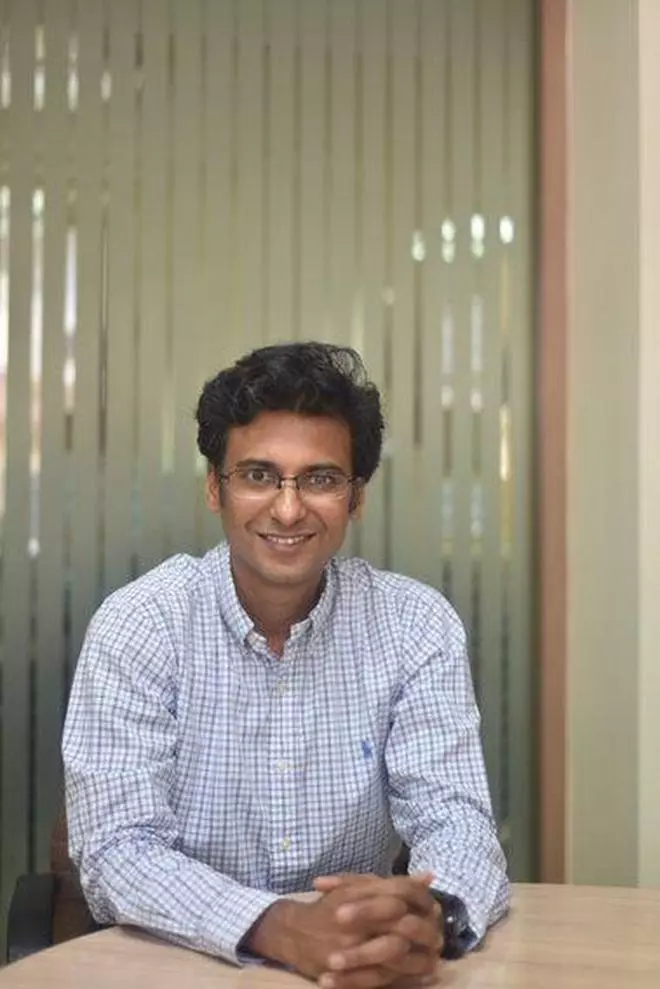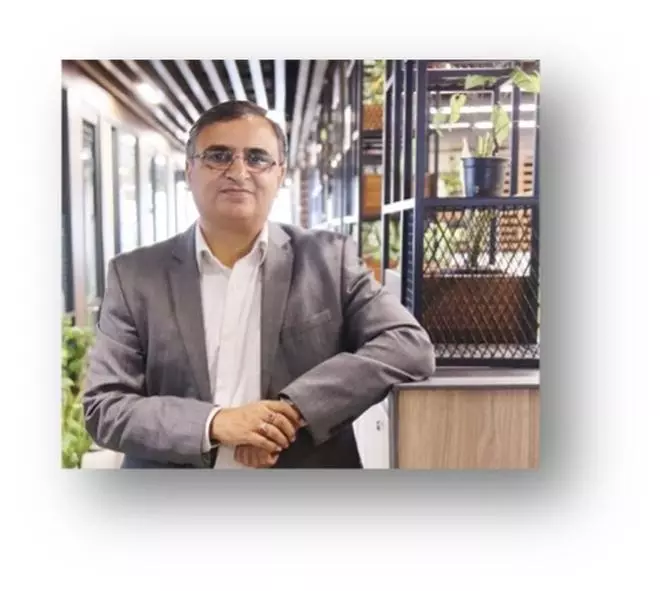Mahyco, one of the major seed producers in India, and Savannah Seeds, the Indian arm of US-based RiceTec Inc, have come together to set up an “agricultural-climate technology” company Paryan to solve current issues faced by the agriculture sector in the country.
To particularly address the challenges of global climate change, Mahyco and RiceTec have formed a 50:50 joint venture firm, Shirish Barwale, Managing Director of Mahyco, and Ajai Rana, Chief Executive Office, Savannah Seeds, told businessline in an online interaction. “As a ‘climate-technology’ company, Paryan will focus on addressing challenges of food production and sustainability,” said Barwale.

Shirish Barwale, Managing Director of Mahyco
Incorporated in 2024, Paryan will work on the development and commercialisation of farming practices and seed technologies focused on sustainable production of the country’s two major food crops — rice and wheat.
Controlling weeds
The newly formed company is introducing “game-changing” environment-friendly wheat and rice technologies, which will be offered to other seed firms, among farmers. The technology, which can control weeds, has been developed through mutation, which is changing the DNA sequence.
“We have launched the rice technology already, which came from RiceTec. We hope to launch the wheat technology in the coming rabi season, provided government approvals are in place,” said the Mahyco Managing Director.

Ajai Rana, Chief Executive Office, Savannah Seeds Pvt Ltd
Mahyco is offering its wheat technology in the joint venture, said the Savannah Seed’s CEO. While the rice technology is called FullPage®, the wheat technology has been named FreeHit®.
During the current kharif season, Paryan has launched the rice technology through two hybrids in about 15,000 acres. About 9,000 acres have been covered in Punjab and Haryana and the rest 6,000 acres in Chhattisgarh and Madhya Pradesh.
Demos in 7 States
The demonstration of the technology has been held in Telangana, Andhra, Chhattisgarh, Jharkhand, Bihar, Bengal and Gujarat. “However, the focus will be on Punjab, Haryana, Uttar Pradesh, Chhattisgarh and Madhya Pradesh because the problem (climate challenge) is severe,” said Rana.
He said the company has got the Government’s permission to introduce the rice technology and is test-marketing the wheat technology. During the trials, the yield was recorded at 7.5-8.5 tonnes per hectare against the national average of 4.3 tonnes. “The new technology will help farmers to go in for direct seeded rice (DSR), which will reduce methane emissions, cut labour costs and stop stubble burning,” the Savannah Seed’s CEO said.
Carbon credit
He said it takes 4,000 litres of water to produce a kg of rice. If farmers switch over to the DSR system, 30 per cent of the water can be saved, while greenhouse gas emissions can be cut by 50 per cent. “DSR is already registered as a project with the global carbon credits agency such as Gold Standard and Vera,” said Rana.
The new technology can increase farmers’ income as they need only half the area to produce the same quantity they are producing now, Barwale said.
In Punjab and Haryana, farmers took up DSR in 2020 in over four lakh hectares due to the lack of migrant labourers. “But they switched back from DSR because they could not control weeds and those varieties were not suitable for DSR,” he said.
Haryana, Punjab subsidy
Paryan will promote agronomic practices such as DSR and zero tillage of wheat. The company’s technology will help overcome wild rice species called “Karga” in Chhattisgarh, Madhya Pradesh and Odisha.
Barwale said rice does not need much water to grow and farmers are using it as a sort of “low-cost, safe and effective herbicide”. If weed is controlled through DSR, rice can be grown as wheat. “You sow it directly into the ground with new-age planters that are available today, which is what we recommend in Paryan’s FullPage solution,” he said.
Rana said Haryana provides a subsidy of ₹4,500 an acre for DSR, while Punjab offers ₹1,500. “In both these States, there are nearly 10 million acres for adoption of DSR. But it has been adopted on only 3 lakh acres,” he said.
Savings for farmers
Over the past four years, Mahyco and Savannah have held about 800 demonstrations on farms. “This can save transplantation costs, which are about ₹7,000 in South India and ₹4,500 in North India,” the Savannah Seeds CEO said.
“The farmer doesn’t have to transplant. They can level their field, bring a tractor and the seed drill and directly plant,” he said, adding that trials and demonstrations have shown that a farmer can save between ₹7,000 and ₹10,000 per acre.
Barwale said things in Punjab were heading to a situation where in five years, it would be tough to produce rice because of dropping groundwater levels. “We will sell these technologies and products under our brands — Savannah and Mahyco. But we would like to out-license (like Intel chips in computers) it to other companies so that the technology is available to more number of farmers,” Rana said.
Open licensing platform
Companies or licensees out-licensing the technology can use it in their current seeds or opt for a new variety. “Using the Paryan platform, we would be out-licensing both these technologies to other seed companies,” said the Savannah Seeds CEO.
The company has held demonstrations of its technology for Corteva Agriscience and Bayer CropScience. “Bayer has sourced our trait product with the technology for distribution in Punjab and Haryana with Corteva,” he said, adding that the Paryan team has held initial discussions with both corporates.
Barwale said Paryan has held demonstration of its technology for five companies this year. “It’s an open licensing platform, so we want it to be available to as many people as possible. The only criteria is they should show commitment to the technology and be willing to invest in it,” he said.
On its part, the company charges a fee for the services it provides. While Mahyco and Savannah are trying to recoup their R&D investments to continue research, they are ensuring that the cost would not be prohibitive for the farmers to adopt the technology.
Rice & wheat only
Over the next couple of years, Paryan will scale up the current technologies. “We have a pipeline of technologies to help sustain modern agriculture, which is climate resilient and sustainable,” said Barwale.
The company has begun partnering with like-minded companies and organisations to offer the new technology as rice and wheat cover nearly 70 million hectares of land.
Rana said the problem with rice production in India is that only 9 per cent of the area is under hybrids against 70 per cent in the US. “In rice hybrid, we introduced environmental genetic male sterility (EGMS) which can develop the hybrid faster and improve productivity. We introduced that new technology in India,” he said, adding that the company calls it smart genetics.
Asked if Mahyco would consider similar technology for cotton since it gained prominence in the country for introducing the Bacillus thuringiensis (Bt) varieties, Barwale said Paryan is currently working on rice and wheat only. Currently, Mahyco and Savannah are sharing the expenses required for Paryan, he said.





Comments
Comments have to be in English, and in full sentences. They cannot be abusive or personal. Please abide by our community guidelines for posting your comments.
We have migrated to a new commenting platform. If you are already a registered user of TheHindu Businessline and logged in, you may continue to engage with our articles. If you do not have an account please register and login to post comments. Users can access their older comments by logging into their accounts on Vuukle.